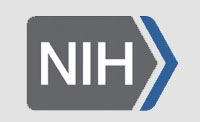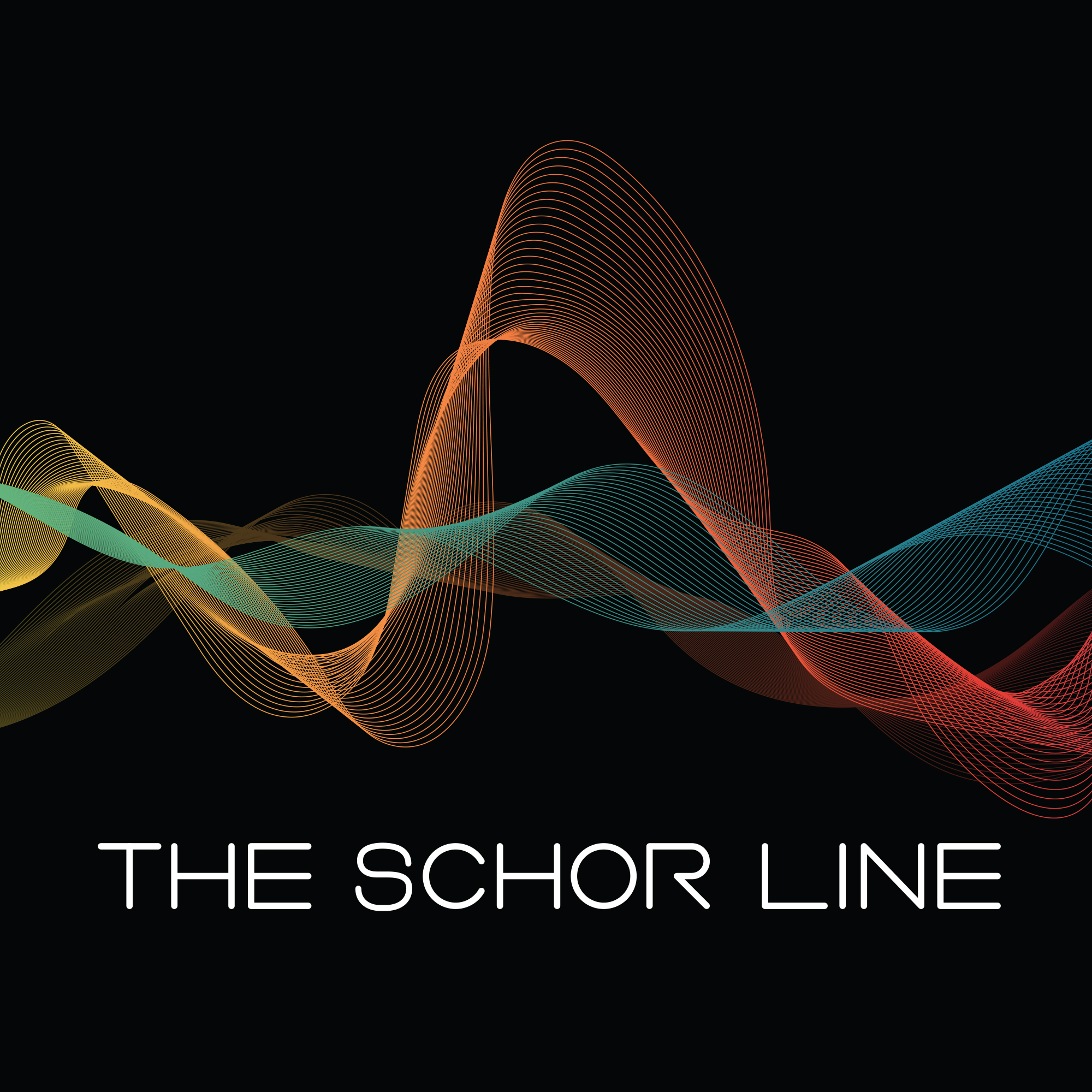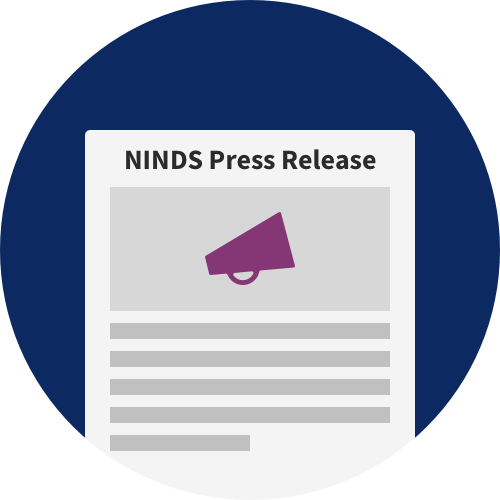COVID-19 is an emerging, rapidly evolving situation.
Get the latest public health information from CDC: https://www.coronavirus.gov
Get the latest research information from NIH: https://www.nih.gov/coronavirus
NIH staff guidance on coronavirus (NIH Only)
You are here
COVID-19 Funding Opportunity Announcements & NOSIs
COVID-19 Funding Opportunity Announcements & NOSIs
What is a NOSI?
A NOSI is a standardized format for NIH institutes and centers (ICs) to share and update research priorities by publication in the NIH Guide for Grants and Contracts. NOSIs usually direct applicants to Parent PAs with standard NIH submission dates—see the NIH Standard Due Dates for Competing Applications.
What do NOSIs Include?
NOSIs generally include a brief statement of purpose, descriptions of specific scientific topics of interest, a list of FOAs used for application submission, and application instructions for referral processing and application tracking. NINDS NOSIs can be issued for up to three years and include an expiration date.
Frequently Asked Questions for NINDS Notice of Special Interest (NOSI):
Availability of Urgent Competitive Revisions and Administrative Supplements For Research on Biological Effects of the 2019 Novel Coronavirus on the Nervous System Notice Number: NOT-NS-20-051
This list of Frequency Asked Questions is meant to help Investigators better understand requirements and special circumstances related to the submission of an application to this NOSI. It is not meant to be a comprehensive list. Investigators are encouraged to contact the NINDS Program Officer for their current grant if they have additional questions.
Objectives of NOSI
Why is NINDS supporting research on COVID-19?
There are many important and unanswered questions about the actions of SARS-CoV-2 on the nervous system and consequences of COVID-19 infection on neurological outcomes. NINDS is encouraging the submission of applications for supplements to existing NINDS grants to address the biology, pathophysiology, prevention, diagnosis, sequelae, or treatment of the 2019 Novel Coronavirus to rapidly improve our understanding of the neurological consequences of SARS-CoV-2 infection and of COVID-19, and to be responsive to the urgent need for data to address the current crisis.
Does NINDS have priority research areas that they would like to support through this NOSI?
Research projects must fall within the mission of the NINDS, which is to seek fundamental knowledge about the brain and nervous system and to use that knowledge to reduce the burden of neurological disease. NINDS is interested in supporting projects that were unforeseen at the time of the initial active grant award and are of high importance in addressing the current urgent health crisis caused by the COVID-19 pandemic.
What is meant by “Urgent” in the context of this NOSI?
“Urgent need” refers to language in the Urgent Competitive Revision funding announcement (PA-18-935), focusing interest in research that will address a specific public health crisis in a timely manner and was unforeseen when the relevant grant application or progress report was submitted. Supplements that meet this need and fall within the original scope of an active NINDS grant are also of interest and should be requested through the Parent Administrative Supplement funding announcement (PA-18-591).
Is NINDS prioritizing time-sensitive research?
NINDS may consider the time sensitivity of research in its funding decisions. Scientific impact will also be considered. Time-sensitive features of the project might include a unique opportunity or existing resources that can further our understanding of COVID-19, a ‘ready to go’ project that can be done with existing approaches and tools, an unanticipated opportunity for synergism between collaborators with appropriate expertise, and/or use of resources to markedly accelerate understanding the biology of COVID-19 or SARS-CoV-2 in the nervous system. Research projects that will take time to establish feasibility or seek to inform long-term understanding of biological processes may be better suited for application to standing competitive funding announcements supported by the NINDS or other NIH Institutes or Centers.
The NOSI contains opportunities for applying to the Administrative Supplement funding announcement (PA-18-591) and for applying to the Urgent Competitive Revision funding announcement (PA-18-935). Which announcement should I use?
Applicants proposing research that is considered “in scope” of the parent grant should use the Administrative Supplement announcement, PA-18-591. “Scope” is defined as the original specific aims, objectives, and purposes of a grant, the methodology, approach, analyses or other activities, and the tools, technologies, and timeframes needed to meet the grant's objectives. A logical extension of the current work that adds a COVID-19 related project would generally be considered “in scope.” For example, a funded study of CNS infection of Zika virus in a mouse model that proposes to add an aim on SARS-CoV-2 infection.
Work that is considered “out of scope” of the parent grant should use the Competitive Revision announcement, PA-18-935. A change in scope is a change in the direction, aims, objectives, purposes, or type of research supported in the approved peer-reviewed project. Changes include shifting the research emphasis from one disease area to another or changing any aspects of research involving vertebrate animals or human subjects. These changes would typically require prior approval such as:
- Introduction of objectives or aims or a different type of research activity that does not fit within the overarching goals of the original project
- Substitution of one animal model for another
- Shifting the research emphasis from one disease area to another
- Introduction of a new vertebrate species (e.g., mice in parent grant and applicant proposes to study nonhuman primates in the supplement)
- Introduction of human subjects research in the supplement when the parent grant does not already involve human subject research, or the proposed introduction of human subjects research in children in the supplement when the parent grant only involves adult human subjects research, or vice versa
- Introduction of a clinical trial in the proposed supplement when the parent grant does not already include a clinical trial, or
- Introduction of new additional risks to human subjects (e.g., change from minimal risk human subjects research to more than minimal risk research) such that a new Data and Safety Monitoring Plan or a Data and Safety Monitoring Board is now required
If you have any additional questions about which announcement to use, you are encouraged to contact your NINDS Program Officer.
Is it an administrative supplement or a competitive revision if I want to add a cohort of individuals who survived COVID-19 to my clinical study?
Adding a cohort that is subject to the same protocol as the parent study would be in scope and would fit the administrative supplement funding announcement. Adding a new protocol or changing any aspect of human subjects research or consent would be a change in scope and would be a fit for the urgent competitive revision funding announcement.
Can I switch from animal work to human subjects research or add animal or human subjects to a grant that does not currently have this component?
Yes, switching from animal work to human subjects research or adding a component would be a change in scope, but is allowed under the competitive revision supplement funding announcement (PA-18-935). For addition of animal subjects, an institutional assurance number and Vertebrate Animal Section must be included if appropriate. For addition of human subjects, the application should address protections of human subjects, inclusion of women and minorities, inclusion of children, a PHS inclusion enrollment report as needed and should indicate the expected time required to obtain IRB approval and begin participant enrollment. Feasibility and timeliness of the work will be taken into consideration.
How can I apply to PA-18-935 for a Competitive Revision when NINDS is not listed as one of the participating NIH Institutes or Centers?
PI/PDs of active, eligible NINDS grants can apply to this PA even though NINDS is not listed as a participating institute. Because this NOSI, NOT-NS-20-051, directs investigators to submit revision applications to PA-18-935, this effectively activates NINDS’s participation in this announcement specifically and only for responses to this NOSI.
How much funding will NINDS allocate to this COVID-19 program?
NINDS has no set-aside funds for supplements awards in response to NOT-NS-20-051. At present, all awards for proposed COVID-19 research will be made from NINDS’s regular budget allocations.
Why is NIAAA also listed on this NOSI?
PI/PDs of eligible, currently active NIAAA grants can apply through this NOSI for support of research that seek to better understand, prevent, and mitigate some of the neurobiological consequences of SARS-CoV-2 infection and COVID-19 in individuals who have Alcohol Use Disorders (AUD). Such PI/PDs should contact the Program Officer for their NIAAA grant for additional guidance. Additional interests of the NIAAA for COVID-19-related research can be found here.
Would animal studies be responsive?
Yes, if the proposed research is within the mission of the NINDS, with a timeline and potential impact that meets the needs of the current health crisis.
Must all proposed research involve SARS-CoV2/COVID19? For example, would studies using other Coronavirus strains or infectious agents such as influenza be considered responsive?
NINDS is interested in supporting projects that were unforeseen at the time of the initial active grant award and are of high importance in addressing the current urgent health crisis caused by the 2019 Novel Corona Virus in a timely manner. While studies need not, necessarily involve SARS-CoV-2, the research proposal should provide a compelling justification for how the proposed studies will address COVID-19 and/or the current health crisis and why a supplement/revision to the existing grant is needed at this time.
Grant Eligibility
I have a project idea that falls within the NINDS mission, but I do not have an active NINDS grant at this time. May I submit an application in response to this NOSI?
No, this NOSI is only available to provide supplements to existing active NINDS grants. The parent award must be active when the supplement application is submitted (e.g. within the originally reviewed and approved project period), regardless of the time remaining on the current project. Grants with multi-year funding (RF1) may have additional constraints. Applicants with these grants should contact the program official to determine eligibility.
I don’t have any NINDS-funded or co-funded grants, but I have a grant funded by another NIH Institute. Can I apply to this NOSI?
No, but many other NIH Institutes and Centers are issuing NOSIs of their own. We encourage you to visit https://grants.nih.gov/grants/natural_disasters/corona-virus.htm to identify other NIH funding opportunities that may be available and appropriate for your research.
I have a grant application that has been reviewed and scored within NINDS’s current published payline, but it has not yet been awarded. Can I submit a supplement application in anticipation of the award being made?
No, this NOSI is only open to grants that are in the active performance period. However, once you receive a Notice of Award you may submit a supplement application.
My grant is co-funded by NINDS but its primary assignment is under another Institute/Center (IC). Can that grant serve as the parent grant to apply to this NOSI?
Yes, a grant co-funded by NINDS but held by another IC is acceptable as the parent grant for this NOSI, as long as other administrative requirements are met.
Can I submit an administrative supplement or competitive revision if I my current grant is in a no cost extension (NCE)?
No, you may not submit a supplement application to this NINDS NOSI if your grant is in an NCE.
My NINDS grant is due to end soon, if I apply and receive a supplement, can an administrative supplement extend into an NCE period?
Yes, as long as the application is submitted while the parent grant is still active, the supplement timeline can exceed the end date of the parent award. However, note that the RF1 grant mechanism does not allow no cost extensions (see below).
Can an Investigator submit more than one supplement application per the same parent grant?
Yes, as long as the proposed supplement projects are distinctly different and the parent grant meets the administrative requirements, such as its funding mechanism and time remaining in the performance period, more than one supplement application may be submitted on a single parent grant.
What funding mechanisms or grant activity codes are eligible for a supplement application?
Supplement requests may be submitted for additional support for the following grant mechanisms: P01, P50, R00, R01, R03, R15, R21, R33, R35, R41, R42, R43, R44, R61, RF1, U01, U19, U24, U44, U54, UG3, UH3
Can I submit an Administrative Supplement when I have an RF1 parent award?
Yes, as per NOT-NS-20-074, although the parent administrative supplement FOA (PA-18-591) does not support the RF1 mechanism, the NINDS will accept Administrative Supplements to a RF1 grant under this NOSI. Also, the RF1 is allowable under this NOSI to apply to the Urgent Award Funding Opportunity Announcement (PA-18-935). Please note before applying: consider the length of time left on the RF1 project period, as there are NO extensions allowable for this mechanism, therefore the research proposed must be accomplished in the time remaining. The NINDS will also take into consideration any large unexpended balances on a RF1 grant when prioritizing the supplement application for award. Applicants with RF1 awards are encouraged to contact their NINDS program officer if planning to submit a supplement application.
Can investigators use this Notice of Special Interest (NOSI) to fund a research supplement to an NIH/NINDS-funded contract?
No, funding opportunity NOT-NS-20-051 is for supplements to an active NINDS-funded or co-funded grants or cooperative agreements. However, investigators who have a qualifying grant may use resources (e.g., specimens, data, etc.) that have been generated in an NIH-funded contract in the proposed supplemental research.
Are multiple PI (MPI) applications allowed to submit an administrative supplement or competitive revision?
Yes, the administrative supplement or competitive revision application to an existing MPI grant must be submitted using the same contact PD/PI as the approved parent grant. A competitive revision application may propose changes in the Leadership Plan or in the composition of the leadership (by adding or removing PD/PIs) for consideration by NINDS programmatic review. The proposal must include a Leadership Plan and must provide a rationale for any such changes. A competitive revision to a single PD/PI grant may be submitted proposing multiple PD/PIs provided a Leadership Plan is also included.
Are NINDS-funded researchers at non-US institutions eligible to apply for supplemental funds?
Yes, NINDS-funded researchers at foreign institutions, as well as researchers leading foreign components of NINDS funded grants are eligible to apply. Justification should include description of special resources or characteristics of the research project (e.g., human subjects, animals, disease, equipment, and techniques) that are required at the non-US site. The addition of a foreign component to an ongoing NIH grant continues to require NIH prior approval, as outlined in the NIHGPS, Section 8.1.2 , Prior Approval Requirements. Proposed foreign components must comply with related NIH policy (see NOT-OD-19-114).
Review Process
Will all applications received in response to the NOSI be funded?
No. Applications received in response to this NOSI will undergo review. Funding decisions will be made based on the scientific merits, adherence to the goals of the NOSI and availability of funds.
How will applications be reviewed, and what criteria will be used to judge the merit of applications?
Due to the shortened timeline between application due date and funding, applications will be evaluated for scientific and technical merit by an appropriate internal review panel convened by NINDS. Applications will be reviewed based on the review criteria listed in PA-18-591 and PA-18-935, as well as the potential to accomplish the objectives described in NOT-NS-20-051. Standard review criteria will also be considered: Are the overall strategy, methodology, and analyses well-reasoned and appropriate to accomplish the specific aims of the project? Have the investigators presented strategies to ensure a robust and unbiased approach, as appropriate for the work proposed? Is the urgent time frame feasible for the proposed research? Are the PD/PIs, senior/key personnel, and research team well suited and appropriate to carry out the project? Will the studies have a significant and sustained impact on understanding of the biological effects of SARS-CoV-2 or COVID-19 on the nervous system?
Will the administrative supplement applications be reviewed using different criteria from urgent competitive revisions applications?
Administrative supplement applications and urgent competitive revision applications will be reviewed using the criteria listed in the respective funding announcement and will be reviewed with others submitted to the same funding announcement. The review process for all supplements will be the same and will use similar criteria with regard to the potential to accomplish the objectives described in NOT-NS-20-051.
Are preliminary data required?
Due to the urgent unmet need for research in this area, reviewers will consider the potential new direction of the proposed research as well as the feasibility of getting the proposed research started in a timely manner. Feasibility may be demonstrated with preliminary data or other evidence.
What is the anticipated turnaround time for supplement applications to be reviewed and receive funding?
The process for review and funding decisions is still under development, but NINDS will endeavor to have a funding decision to applicants within approximately 2 months after receipt of the application.
How many supplement applications will be funded?
NINDS has not set a predefined number of awards and there are no specific COVID-19 set-aside funds in NOT-NS-20-051. The number of awards will be determined by the number of meritorious applications that meet the objectives defined in NOT-NS-20-051 and availability of funds from the normal NINDS appropriations.
How frequently might reviews occur?
NINDS will review applications on a rolling basis.
Is there an advantage in submitting sooner rather than later?
Applicants are encouraged to submit supplement applications when ready. There is no fixed set aside funding. Applications will be accepted on a rolling basis from April 15, 2020 to April 14, 2021 at 5:00 PM local time of the applicant organization. This NOSI expires on April 15, 2021. An application submitted in response to this NOSI that is received after the expiration date will be withdrawn.
Will I receive written comments or feedback from the review?
No, due to the shortened timeline, the review panel will not be able to provide comments or feedback directly to applicants. If the application is deemed non-responsive, a brief reason will be provided to your Program Official.
Is it permitted to re-submit a failed supplement request?
Except for rare circumstances, NINDS does not encourage applicants to resubmit supplement applications that were previously reviewed under this NOSI and not selected for funding. Instead, NINDS recommends that submitters of unsuccessful applications consider other NIH funding opportunities for their project ideas, including other COVID-19 related funding opportunities found here: https://grants.nih.gov/grants/natural_disasters/corona-virus.htm
I am proposing new human subjects or animal research. Does my IRB or IACUC approval need to be in place by the time I submit?
You may submit prior to approval. However, given the urgency of addressing the current health crisis, reviewers will consider the feasibility of timely startup required for the proposed work to meet the urgent need. If the IRB or IACUC approval is not in place prior to submission, the application must clearly address the timeline for such approval. No award will be made until the appropriate approvals are in place.
Will my application be given higher priority if it fits within the missions of both NINDS and NIAAA?
No, applications that fit within the mission of the NIAAA statement of interest as indicated in NOT-20-051 will be routed directly to NIAAA. Information for NIAAA applications related to the COVID-19 pandemic can be found here: https://www.niaaa.nih.gov/niaaa-covid-19-notice-special-interest-nosi-and-other-nih-nosis
Budget and Application Inquiries
What are the budget caps for Administrative Supplement and Competitive Revision applications?
Requests for either announcement should not exceed $200,000 in total direct costs and all budget requirements must be justified. If the current year’s award is less than $200,000, the requested direct costs for the Administrative Supplement announcement may not exceed the direct cost amount of the current year’s award. Maximum direct costs are exclusive of consortium/contractual Facilities and Administrative (F&A) costs.
How many years of research performance and funding can I request under this NOSI?
Both mechanisms, PA-18-591 and PA-18-935, are limited to 1 year of performance.
Do I need to provide a budget justification?
Yes, you should provide a justification that clearly matches the needs for the proposed research.
How should I structure the budget request in the application if the 1 year performance period will partially overlap two years of the parent grant?
Submit the application with one year of budget request corresponding to the currently active year of the parent grant. Carryover to the following year will be allowed.
What costs will be allowable for the requested budget?
You may include any justified expense required for the proposed research, including specified salary, equipment, services, subawards, etc., that would also be an allowable cost under standard NIH budget rules. However, funds are not available through this NOSI to support recovery for losses or reduced productivity on the original grant due to the closure of labs or loss of resources as a result of the COVID-19 pandemic.
What if the proposed studies cannot be done within the $200,000 direct cost cap?
In rare cases, the cap may be exceeded with prior approval from NINDS. A compelling justification is needed to exceed this cap. Please notify your Program Official at least 3 weeks in advance if such approval is requested.
Are there any special instructions about biohazards, select agents, or animal or human subjects research?
Applications must specifically address issues of all potential biohazards and select agents. Human subjects or animal research approvals are required as appropriate. All research must be conducted in compliance with the health and safety requirements found in the NIH Grants Policy Statement. For more information, see https://grants.nih.gov/sites/default/files/Considerations-New-Ongoing-Human-Subjects-Research-During-the-COVID-19-Public-Health-Emergency.docx
I have an investigational agent that I think will show efficacy in treating COVID-19 in humans. Under this NOSI can I submit a Phase I, first-in-human, clinical trial?
A Phase I clinical trial application is allowed. However, in addition to the administrative requirements that must be met regarding the parent grant eligibility, several other conditions must be met before a proposed supplement/revision containing a Phase I trial can be considered for funding. This includes, but is not necessarily limited to: an FDA-approved IND/IDE, IRB approval, a Data and Safety Monitoring Plan or a Data and Safety Monitoring Board, and current Human Subjects Training Certification for all investigators involved in the human subjects work. Investigators are highly advised to reach out to their Program Official prior to submission of a supplement application that includes any clinical trial.
My institution is currently restricting access to essential services only, so my lab is closed. Can I still apply for this NOSI now or do I have to wait for my institution to allow all labs to reopen?
This question is one that should be addressed with your institution. Some institutions may have exceptions that allow research on COVID-19 to proceed at this time or may be phasing in laboratory research. While not required, a Letter of Support from your institution that indicates whether COVID-19-related research (basic, translational, and/or clinical) will be allowed to proceed, and the timeframe for such allowances would be helpful. At a minimum, investigators should address the feasibility of conducting the proposed work in the timeframe planned in the proposal.
-->










